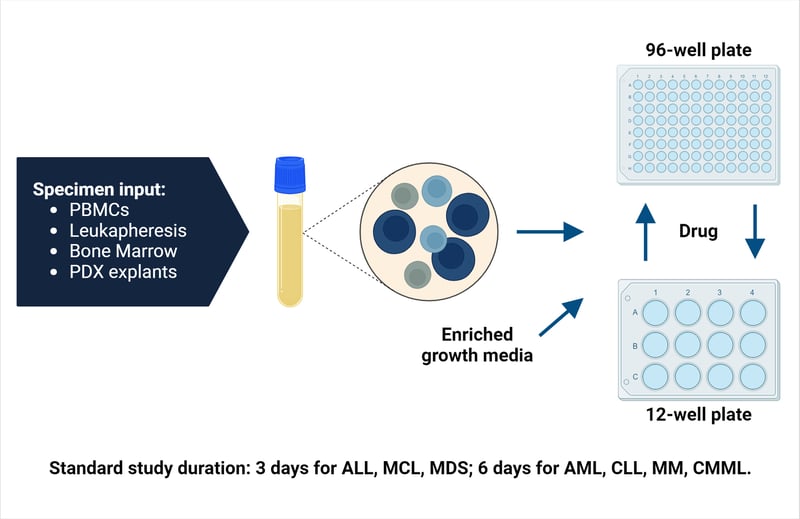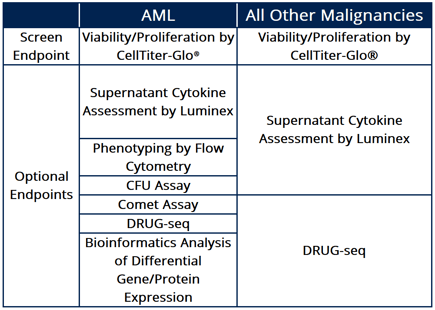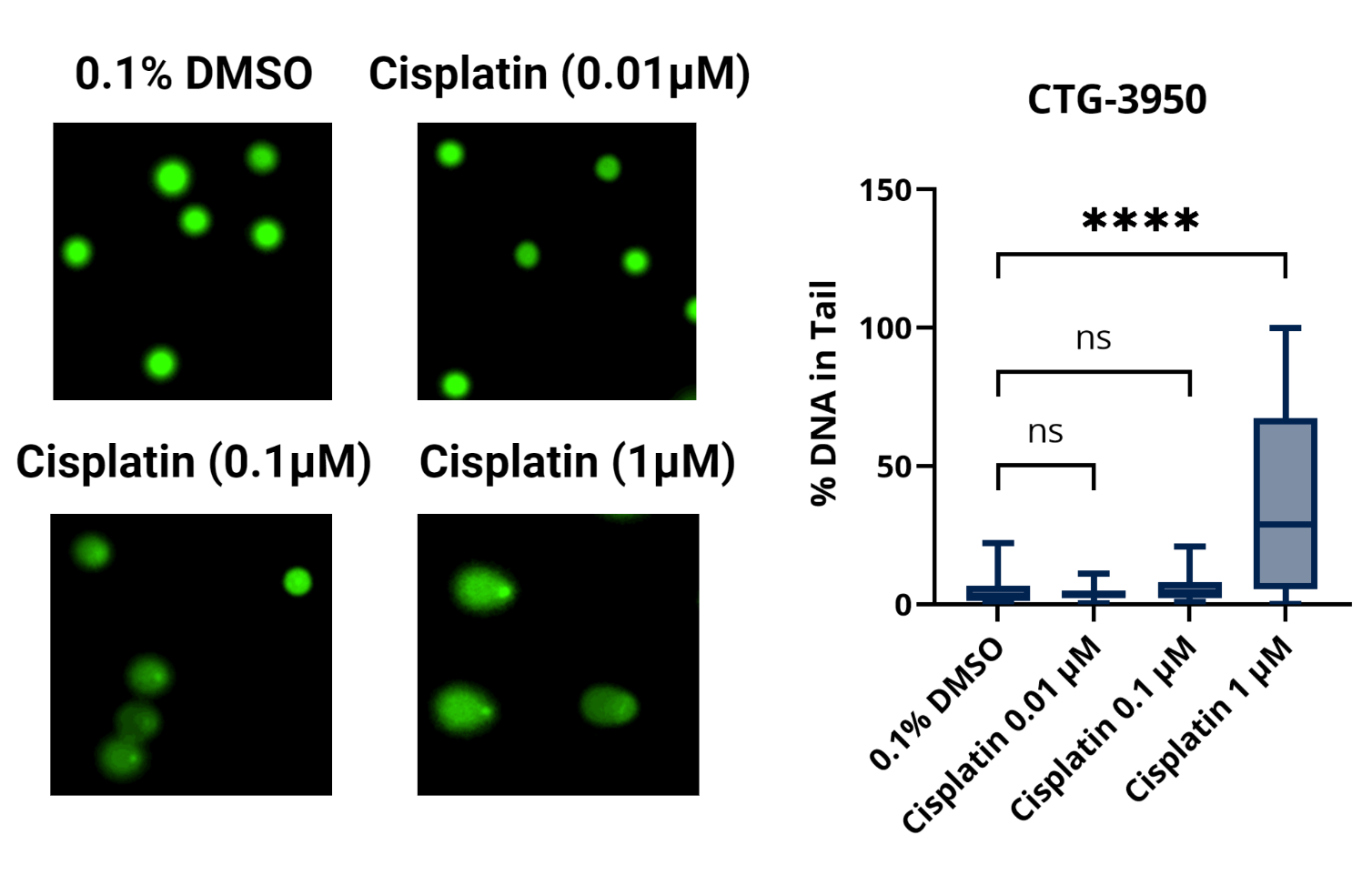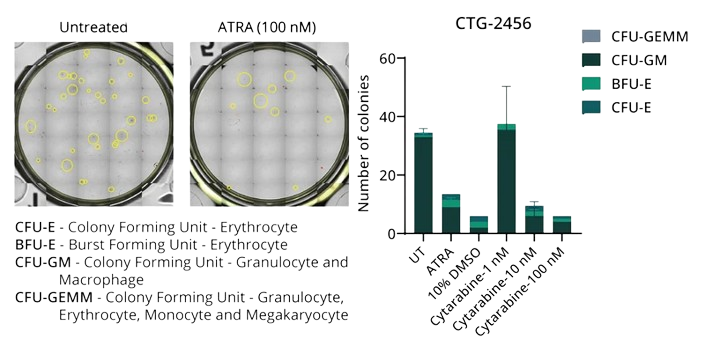Transform Your Blood Cancer Research with Our Extensive Bank
Advance your blood cancer research by leveraging the largest bank of extremely difficult-to-source, never-passaged primary models of hematological malignancies, featuring models of Acute Lymphoblastic Leukemia (ALL), Acute Myeloid Leukemia (AML), Chronic Lymphocytic Leukemia (CLL), Mantle Cell Lymphoma (MCL), Multiple Myeloma (MM), and Myelodysplastic Syndrome (MDS). These clinically relevant models offer heterogeneous responses, mirroring those observed in patients, ensuring dependable outcomes crucial for advancing your drug discovery efforts with confidence.
Clinically Relevant Models
Bank of primary patient blood cancer models that correlate with clinical outcomes
Industry's Largest Bank
Includes models representing major blood cancers including AML, ALL, CLL, MCL, MM, & MDS
Multi-omic Characterization
Clinical annotations coupled with molecular datasets and clinical responses
Features the industry's largest bank of deeply characterized models:
-
Primary models of Acute Myeloid Leukemia (AML)
-
Primary models of T-cell Acute Lymphoblastic Leukemia (T-ALL)
-
Primary models of B-cell Acute Lymphoblastic Leukemia (B-ALL)
-
Primary models of Chronic Lymphocytic Leukemia (CLL)
-
Primary models of Mantle Cell Lymphoma (MCL)
-
Primary models of Multiple Myeloma (MM)
-
Primary models of Myelodysplastic Syndrome (MDS)
An ideal platform for ex vivo drug screening:
-
Model Characterization analysis is available with clinical metadata, NGS, Flow Cytometry, and Proteomics.
-
Carefully curated models with ex vivo and in vivo engraftment capabilities.
-
Co-culture modeling using AML Models with Autologous T Cells for Immuno-oncology therapeutic testing.
-
Multiple endpoint data options available, including Western blot, flow cytometry, and 4D proteomics.
-
50% off on a Standard of Care agent arm (selected by Champions).

Figure 1: The Hematological VitroScreen Workflow

Figure 2: The range of assay endpoints available to customize your VitroScreen results
Examplary Responses to Standard of Care (SoC)





Comet Assay

Figure 3: CTG-3950 shows extensive DNA damage after treatment with Cisplatin.
Colony Forming Unit Assay (CFU)

Figure 4: Cytarabine inhibits cellular differentiation or proliferation in AML Model CTG-2456.
